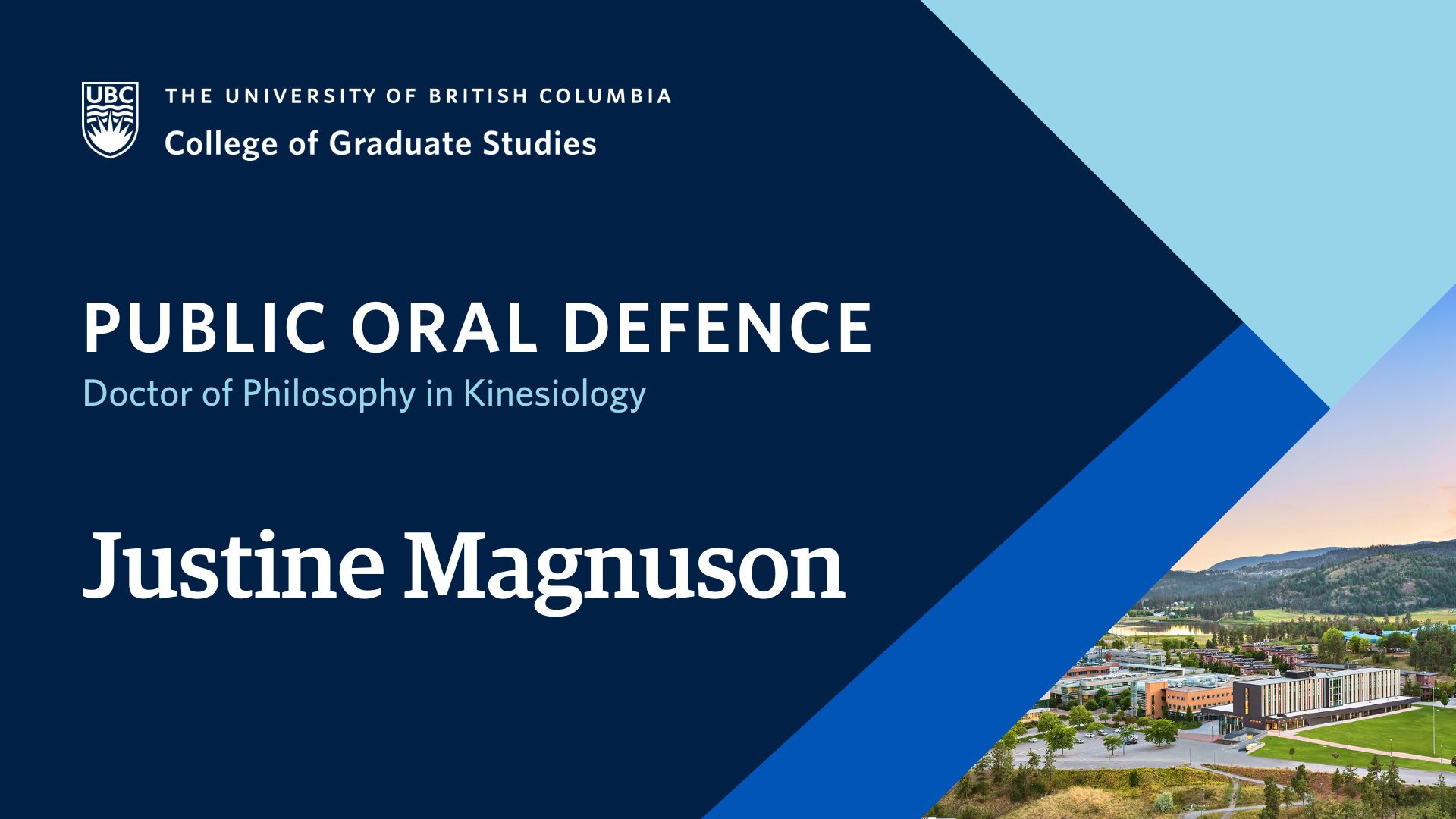
- This event has passed.
Doctoral Examination: Neural and motor responses to mental and physical fatigue
January 11, 2023 at 9:00 am - 1:00 pm

Justine Magnuson, supervised by Dr. Chris McNeil , will defend their dissertation titled ” Neural and motor responses to mental and physical fatigue” in partial fulfillment of the requirements for the degree of Doctor of Philosophy in Kinesiology.
An abstract for Magnuson’s dissertation is included below.
Examinations are open to all members of the campus community as well as the general public. Registration is no required for in-person defences.
ABSTRACT
The overall aim of my dissertation was to assess cortical and neuromuscular responses to both mental and physical fatigue. My first two studies showed that mental fatigue, induced by either a prolonged cognitively demanding task, or sleep deprivation, resulted in slowed ongoing neural activity, less efficient evoked cortical responses and worse accuracy on a complex reaching task. Study #1 also showed that after acute mental fatigue is induced, motor task performance recovers by ~40 minutes post-task, whereas slowed ongoing cortical activity and increased ratings of fatigue are still present until at least 60 minutes post-task, suggesting a different time course of recovery for behavioural and cortical responses. Study #2 showed that, in addition to slowed and impaired inhibitory control with sleep deprivation, task performance during an emotional inhibitory control task was even worse, suggesting interference of emotion processing on response inhibition. Study #3 assessed the effects of a prolonged matched-torque and a matched-EMG elbow flexor task on voluntary activation, corticomuscular and intermuscular coherence, and motor unit discharge rates. I found higher coherence, worse VA, and increased motor unit discharge rates in response to the matched-torque fatiguing task; however, during the matched-EMG task whereby motoneuron pool output was maintained, VA and coherence scores were unchanged and motor unit discharge rates decreased. This suggests different compensatory strategies to maintain task performance during a matched-torque vs. matched-EMG fatiguing protocol. Lastly, given the limited understanding of antagonist motor unit behaviour, study #4 aimed to examine the recruitment patterns of motor units when acting as an agonist vs. antagonist. Surprisingly, I found no antagonist motor unit recruitment in most participants during ramped isometric contractions to MVC, despite appreciable surface-EMG activity. This study showed that motor units that were first to be recruited during an agonist contraction were seldom among those first recruited during an antagonist contraction. Overall, this dissertation provides important new insight into the cortical and motor responses to both mental and physical fatigue and advances our understanding of motor unit behaviour both within and outside the context of fatigue.